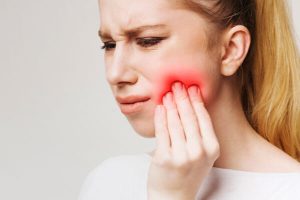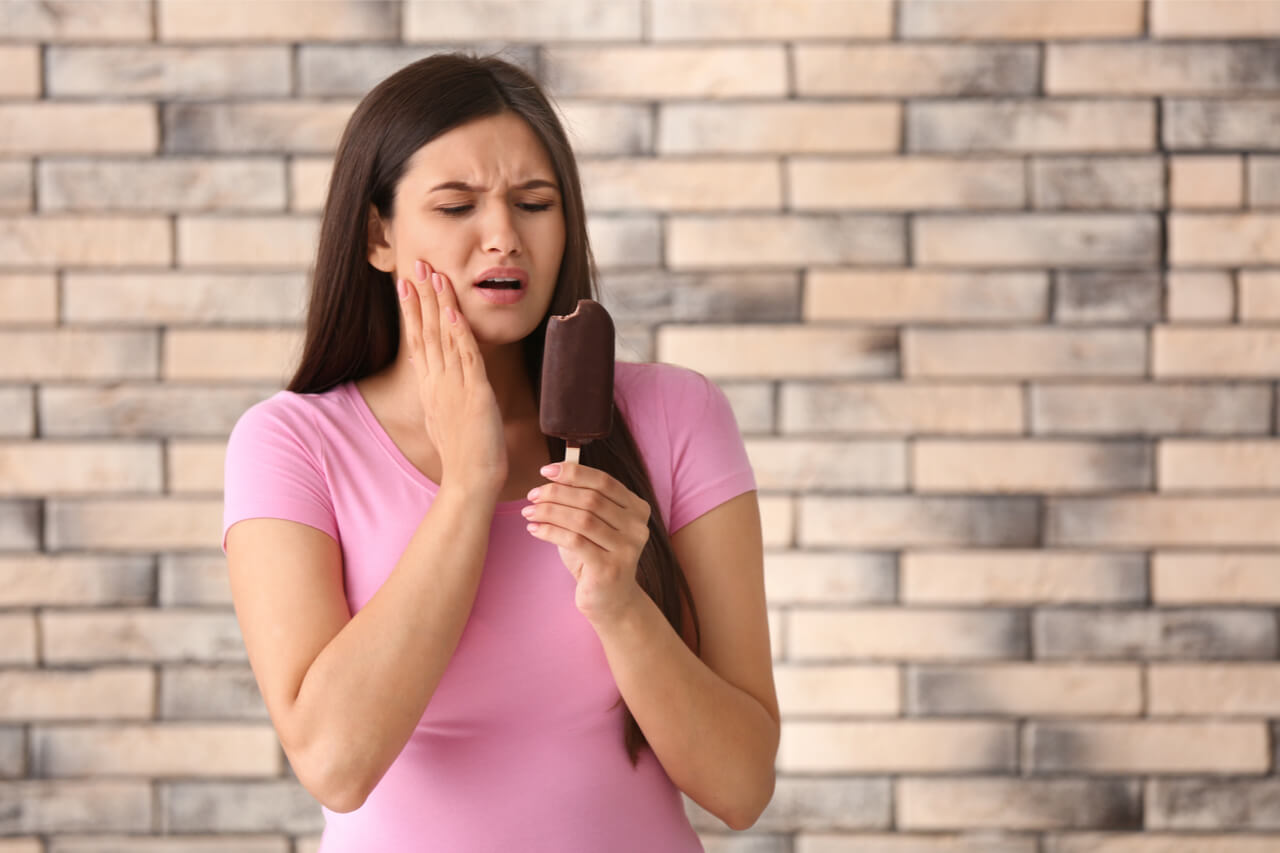Our teeth could get extremely sensitive to either heat or cold. You could be enjoying an ice popsicle and suddenly you’re asking yourself, “Why are my teeth sensitive to cold?” There a lot of factors that can explain why our teeth get sensitive suddenly. And there are also viable options to relieve tooth sensitivity. Several dental clinics offer treatments that can help aid this condition. If you have a trusted dentist, check their services right away to see which procedure can help you effectively.
Sudden tooth pain may occur due to various reasons. The foods and drinks we usually consume, and even the hot and cold weather can affect how our teeth react. If our teeth get exposed all of a sudden, we feel a tingling pain in our teeth that usually lasts for a minute or more. We will discuss the most common causes of sensitive teeth and the possible treatments for this problem.
What Makes the Teeth Hurt
Have you ever thought of the reasons why you have tooth sensitivity? Are your teeth sensitive to hot and cold weather and foods? Does it frequently affect your way of living? Is it troubling you too much? If the answer is yes, it is recommended to visit your dentist immediately as you may be suffering from serious dental problems.
- Tooth decay or gum disease. You can feel a few teeth hurt or nerve damage because you are probably on your way to tooth decay and gum disease. Tooth decay occurs because your tooth enamel is slowly getting softer. The development of plaque in the teeth can contribute to cold-sensitivity and eventually resulting in tooth decay. Sensitivity usually comes from the gum, so if you happen to experience this, try to shift to a toothpaste that good for the gum.
- Excessive use of oral products. One factor that could cause tooth sensitivity is the imprudent use of dental products like toothbrushes, floss, teeth whitening products. Too much acid is also included in this category, coffee and wine for example can lead to the loss of tooth enamel. Enamel is the thin covering of the tooth, it covers the crown which is part of the tooth, without it, the teeth will be exposed and at risk of oral problems.
- Teeth grinding and stress. Bruxism wears away the tooth enamel and exposes the nerves, thus resulting in tooth sensitivity. Most people who grind their teeth are not even aware of their condition since it usually occurs during sleep. Teeth hurt could occur right after grinding or after years of grinding repeatedly.
 Exposure of nerve roots. The reason why tooth sensitivity starts is because of an exposed nerve root. This occurs due to various reasons like receding gums and gum disease. When the dentinal tubes get filled with fluid, cold air or a cold drink can trigger a pain sensation on the teeth.
Exposure of nerve roots. The reason why tooth sensitivity starts is because of an exposed nerve root. This occurs due to various reasons like receding gums and gum disease. When the dentinal tubes get filled with fluid, cold air or a cold drink can trigger a pain sensation on the teeth.- Teeth cracks. Some teeth hurt because of unnoticed teeth cracks. Teeth cracks could be too tiny for us to even notice and others are big enough to cause severe teeth sensitivity.
- Receding gums. If your teeth hurt recurrently when you consume a hot or cold drink, receding gums could be the main reason. You can check if your gums are starting to pull away from your teeth.
Experiencing tooth sensitivity is quite common and is not a rare condition, in fact at least 1 out of 8 people experience this dental problem around the planet.
Prevention
To prevent hot and cold tooth sensitivity and all its other effects on oral health, prevention is a must. Below is a list of the few things to remember to live a tooth sensitivity-free life:
- Try to avoid cold and acidic foods.
- Start a well-balanced diet and consume more fruits and vegetables.
- Make water your main drink instead of sodas and juice.
- Use a soft toothbrush.
- Stop using tobacco.
- Decrease your alcohol consumption.
- Use a toothpaste rich in fluoride.
Home Remedies
If visiting the dentist is not a viable option as of the moment, you may find relief is some home remedies. These treatments are proven to be effective in relieving tooth sensitivity for a while. If your condition gets better, that does not necessarily mean that your tooth sensitivity could get away permanently. Persistent teeth hurt could lead to serious oral conditions, thus, a dentist appointment is highly recommended. Often tooth sensitivity means that the tooth nerves are infected thus a root canal might be needed.
Saltwater rinse is a traditional and old way to relieve uncomfortable feelings caused by teeth hurt. This method helps reduce inflammation and alleviating tooth sensitivity. You can gargle the saltwater rinse which is composed of half a teaspoon of salt dissolved on a glass of warm water for 30 seconds.
Honey and warm water is a good combination as well. Honey is often used in wound management, it can help to reduce pain, swelling, and inflammation. Just place a spoonful of honey on a glass of warm water and gargle the solution for less than a minute.
Desensitizing toothpaste is specially made for people with tooth sensitivity. It has ingredients that help prevent irritants from reaching the nerve endings. It is also composed of potassium nitrate which blocks pain signals from travelling to the brain.
A mild antiseptic known as hydrogen peroxide is commonly used to sterilize cuts and burns to prevent further infection. Using hydrogen peroxide can help ease the pain, heal gums, and stop inflammation. To use this, just add 2 to three caps of 3% hydrogen peroxide to the same amount of water and gargle for 30 seconds.
 Green tea has its own oral purpose too. Aside from its health benefits to the body, it can also be used as a remedy for tooth sensitivity. Green tea has natural antioxidants and anti-inflammatory properties that are beneficial even to oral health. You can use unsweetened green tea as a mouthwash twice a day.
Green tea has its own oral purpose too. Aside from its health benefits to the body, it can also be used as a remedy for tooth sensitivity. Green tea has natural antioxidants and anti-inflammatory properties that are beneficial even to oral health. You can use unsweetened green tea as a mouthwash twice a day.
Aside from being a kitchen ingredient, turmeric is also a good anti-inflammatory component. It is commonly used in ayurvedic treatments, digestive order treatments, and it enhances wound healing. You can use turmeric in tooth sensitivity in 2 ways. The first option is simply by putting turmeric on the affected teeth and gently massaging it. Second is by making a turmeric toothpaste, mix 1 tsp of turmeric, half a teaspoon salt, and mustard oil, use this as your toothpaste for a while until the pain lessen.
Vanilla extracts have pain-relieving and antiseptic components. It was used to help babies who have begun teething and experience pain and discomfort. To use vanilla extract as a home remedy, pour some on a cotton ball and leave it on your gums for a few minutes. You can repeat this process as much as you please.
Chilli peppers and all other hot peppers could be beneficial as well. These have a capsaicin compound that has been used to treat burning mouth syndrome.
Home remedies are a good option to temporarily ease our pain and lessen our discomfort. However, a professional can always figure out the root cause of the condition to give a proper diagnosis and much more appropriate treatment.
